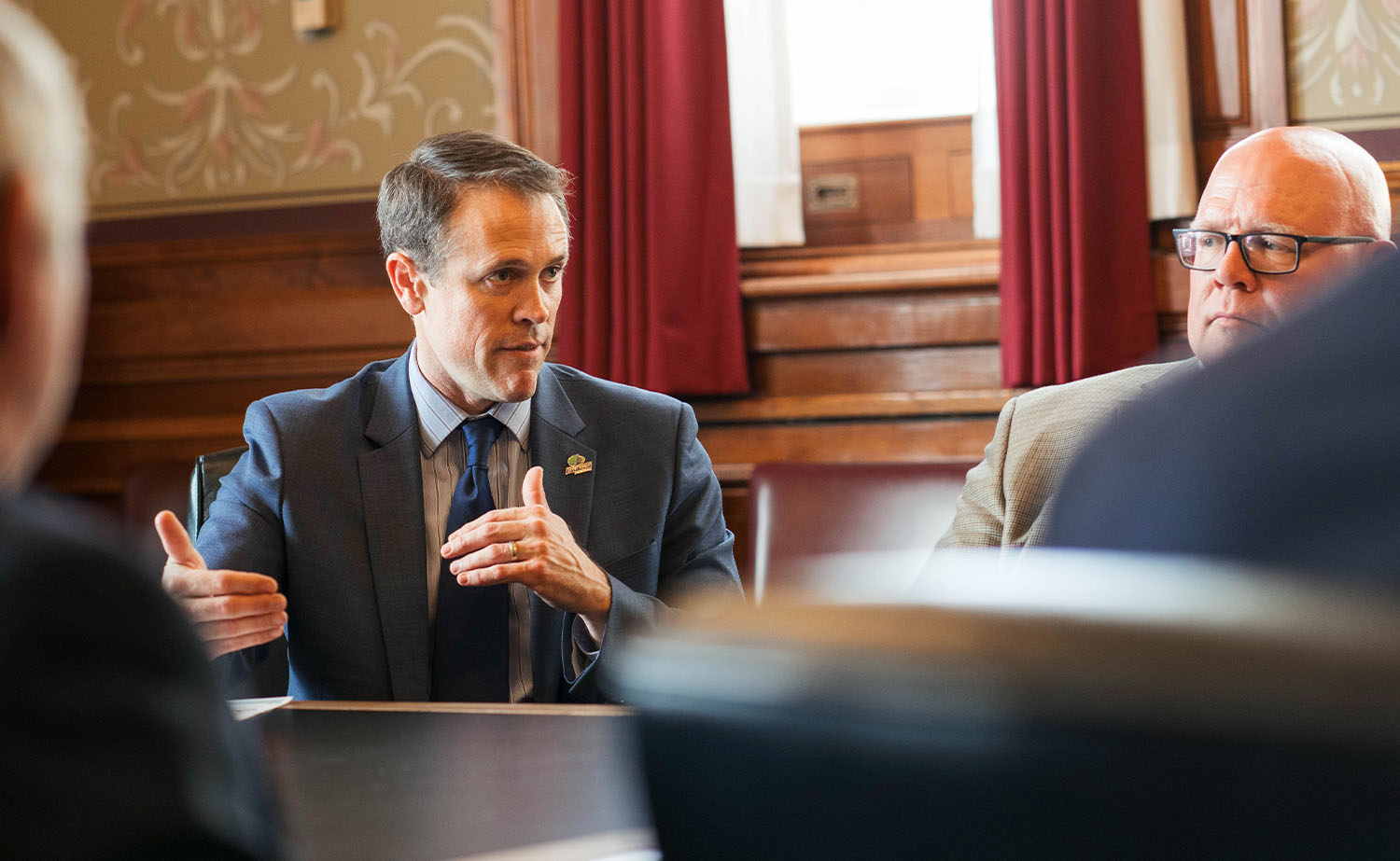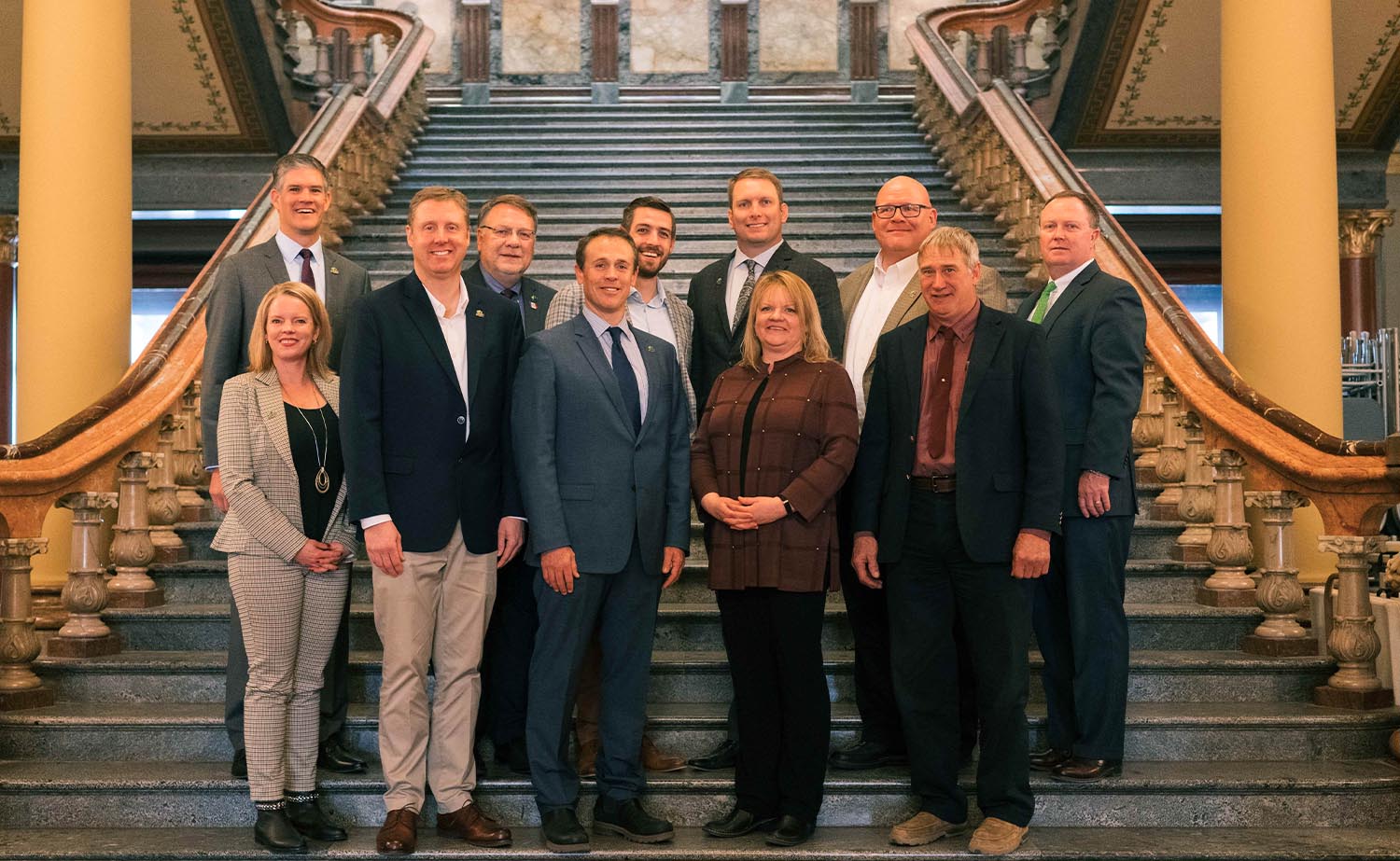
(Photo: Joseph Hopper/Iowa Soybean Association)
Biodiesel supporters thank Iowa lawmakers
March 30, 2023
Article courtesy of Iowa Biodiesel Board.
Some of the most comprehensive biofuels legislation in the country is beginning to take effect in Iowa, a shift expected to improve consumer access to low-carbon biodiesel statewide while supporting the state economy. That’s the message from biodiesel producers, soybean farmers and other supporters as they met with Iowa lawmakers and Gov. Kim Reynolds recently at the State Capitol.
The Governor’s 2022 Biofuels Access Bill (HF2128) passed by wide bipartisan margins last year. The law is expected to increase consumer access to higher biofuel blends like 20% biodiesel (B20) and even 30% biodiesel (B30) — the first legislation in the nation to do so.
“The leadership of Gov. Reynolds and our legislature will help keep Iowa the number one biodiesel-producing state, which benefits all levels of our economy,” says Grant Kimberley, IBB executive director.

The biodiesel sector provides more than $1 billion to Iowa’s gross domestic product, more than 7,000 jobs and more than $500 million in household income, according to a recent study by ABF Economics based on 2022 figures.
“Our industry — including soybean farmers — continues to face a great deal of market uncertainty, so the expansion of our state’s producer credit offers a new safeguard that is significant,” Kimberley says. “We are also excited to lead Iowa’s energy landscape toward more B20 and B30, a trend likely to pick up steam as national commitments mount to rapidly decarbonize.”
The key biodiesel provisions of the Governor’s 2022 Biofuel Access Bill include:
- Extending a credit for fuel retailers for 11% biodiesel (B11) at 5 cents per gallon until 2027. Also introducing new credits of 7 cents per gallon for B20 and 10 cents per gallon for B30.
- Increasing a Biodiesel Production Tax Credit from 2 cents to 4 cents per gallon and extending the sunset through 2027.
- Updating a Biodiesel Fuel Tax Differential to be based on the higher B20 blend beginning in 2026 and expiring in 2030.
- Increasing and updating the Renewable Fuel Infrastructure Program to promote higher blends at the retail level.
Back